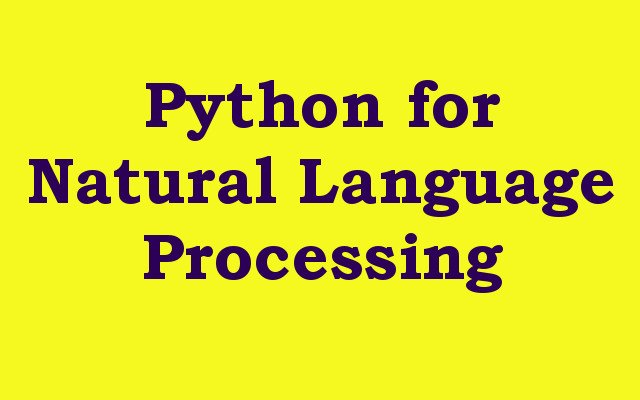In this article we want to learn about Python for Natural Language Processing, Python has become popular programming language for Natural Language Processing (NLP) due to its simplicity, readability and different libraries and frameworks. in this article we want to explore some of the reasons why Python is so widely used in NLP and some of the essential libraries that make it an excellent choice for processing and analyzing natural language data.
Why Python for NLP ?
Python is high level programming language with an intuitive and simple syntax that makes it easy to learn and understand. it has different developer community and this makes it easy to find resources, support and examples of code. Python readability and simplicity also makes it an excellent choice for collaborative projects where several developers may be working on the same codebase.
Also Python offers several libraries and frameworks that are specifically designed for NLP tasks. these libraries can different NLP tasks such as tokenization, stemming, lemmatization, part of speech tagging, named entity recognition, sentiment analysis and many more. some of the most popular NLP libraries in Python include:
- NLTK (Natural Language Toolkit): NLTK is popular open source library that provides tools for building NLP applications. it offers comprehensive set of modules for tasks like text processing, classification and tokenization. it also has corpora that include tagged and labeled datasets for various languages and this makes it an excellent choice for research projects.
- spaCy: spaCy is another open source library for advanced NLP tasks. it is designed to be fast and efficient and it makes it an excellent choice for processing large volumes of text data. spaCy has pre trained models for tasks like named entity recognition and dependency parsing.
- TextBlob: TextBlob is simple and easy library that is ideal for beginners. it offers a lot of NLP tasks like sentiment analysis, part of speech tagging and noun phrase extraction. it also has simple API that makes it easy to use and understand.
- Gensim: Gensim is an open source library for topic modeling and document similarity. it offers different algorithms like Latent Semantic Analysis (LSA) and Latent Dirichlet Allocation (LDA) for topic modeling. It is also optimized for efficiency and makes it popular choice for processing large volumes of text data.
Python also has several other libraries like scikit-learn, pandas and numpy that are commonly used for data analysis and manipulation. these libraries can be integrated with NLP libraries to perform complex data analysis tasks.
Learn More on Python GUI
- How to Create Print Dialog in PySide6
- How to Create Button in Python & PySide6
- How to Use Qt Designer with PySide6
- How to Add Icon to PySide6 Window
- How to Load UI in Python PySide6
- How to Create RadioButton in PySide6
- How to Create ComboBox in PySide6
- How to Create CheckBox in Python PySide6
- Responsive Applications with PyQt6 Multithreading
- Event Handling in Python and PyQt6
- How to Use Stylesheets in Python PyQt6

